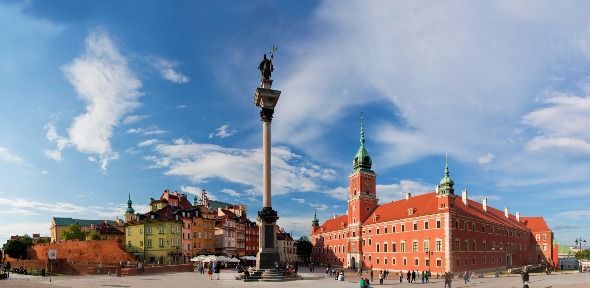
Polish language, literature and culture will be a permanent feature of the University of Cambridge’s research and teaching following the signing of an agreement with the University of Warsaw on 14 July 2017.
The signing will mark the grant of 15 million złotys (approximately £3.1 million), allocated to the University of Warsaw by the Polish Ministry of Science and Higher Education, to endow in perpetuity a Polish Studies Programme at Cambridge.
The programme will provide opportunities for research collaboration as well as teaching in Polish language, literature and culture.
The programme’s research output will be complemented by a series of high-profile public events that will aim to stimulate research in Polish culture and society, and promote greater understanding of Poland’s role in European history as well as its position as a rising economic power.
The new initiative will build on the success of the existing four-year pilot programme in Polish Studies at the University, led by Dr Stanley Bill of Cambridge’s Department of Slavonic Studies and supported by the Foundation for Polish Science (FNP), the M.B. Grabowski Fund, the Zdanowich Fund and Cambridge’s School of Arts and Humanities.
Professor Sir Leszek Borysiewicz, Vice-Chancellor of the University of Cambridge, signed the agreement with the Rector of the University of Warsaw, Professor Marcin Pałys.
Dr Rory Finnin, Head of the Department of Slavonic Studies, said:
"This landmark agreement ensures that Cambridge students will be able to research Polish culture and society -- forever. It establishes a critical European hub for the best research and teaching in the field."
Professor Martin Millett, Head of the School of Arts and Humanities at the University of Cambridge, said: “We are delighted to be strengthening this relationship with our colleagues in Poland, which is not only of strategic importance to the University of Cambridge, but of significant import at this time in the history of Europe.”
“The continuity of Polish Studies at the University of Cambridge is an opportunity for both parties to develop teaching and research cooperation,” said Assistant Professor Maciej Duszczyk, Vice Rector for Research at the University of Warsaw. He added: “An Advisory Board for the new Polish Studies programme at Cambridge -- consisting of representatives from the University of Cambridge, the University of Warsaw, and the Foundation for Polish Science -- will be tasked with setting the framework for our collaboration.”
The agreement was concluded with the support of Poland’s Ministry of Science and Higher Education.
In the autumn, representatives of both universities will meet in Warsaw to take part in an event marking this collaboration.



